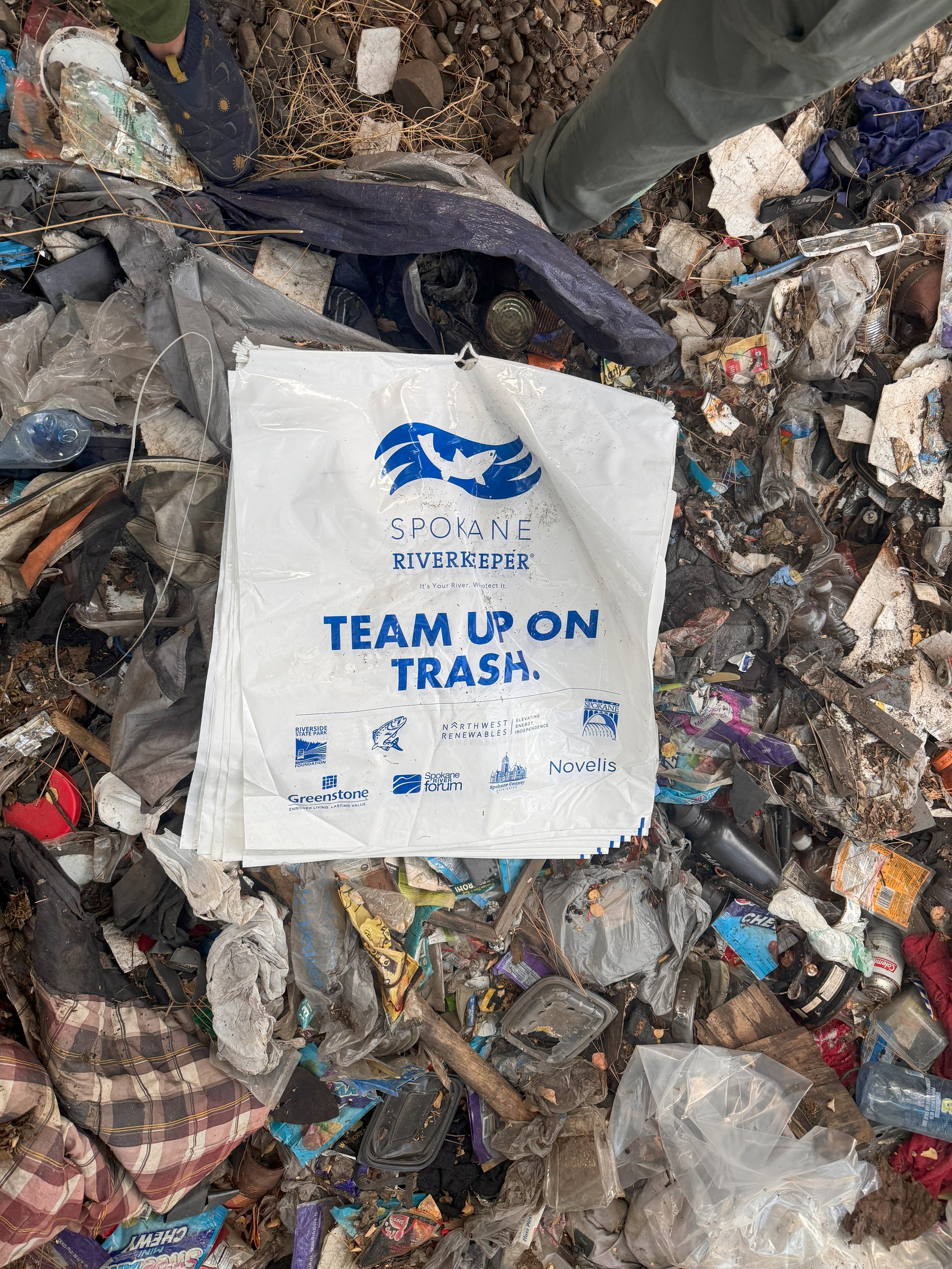After 10 years of river cleanup not much surprises me anymore. We’ve found everything from 100 year old wagon wheels to freshly dumped tires. During this decade we’ve removed about 225,000 pounds of trash with almost 10,000 volunteers. This monumental effort by the community, and the support they’ve shown us solidifies one thing in my mind: Spokane wants a clean river.
Garbage collection, especially along the river, can feel like Sisyphean task
What does surprise me is that the river isn’t getting cleaner. Each year we collect more and more trash. 68,000 pounds in 2024. A Sisyphean task, except the boulder gets larger each time it’s rolled up the hill. And it’s not just us. Other organizations and groups in Spokane are finding the same thing. Riverine trash is a growing problem that is not being solved by cleanup alone.
To solve the issue of litter in our community, we must identify it’s sources. We’re working on identifying the types of trash we find: plastic and textiles make up the bulk of our volume. However, how litter gets there matters as well.
We estimate over half of our trash comes from unsheltered individuals living along the river. That’s about 40,000 pounds this year, with many times that removed by the City of Spokane. Regardless of your opinion of how the unsheltered community is managed along the river, the fact is that they are there and we need to manage their impact.
Spokane Riverkeeper removes trash via raft from camps the city has cleaned up.
Spokane currently fields complaints from the community regarding campers along the river and responds by removing the camps. The unsheltered individuals are asked to leave, and in some cases cited for trespassing. The associated trash is bagged by a large team of employees. Some of these camps can exceed 10,000 pounds of trash, taking days of work to remove. In areas where trash cannot be hiked out, the Spokane Riverkeeper floats it out. However, as soon as these camps are gone, others grow in their place.
Impacts of abandoned homeless camps along the Spokane River.
Spokane Riverkeeper has a policy to not report camps, avoiding the criminalization of homelessness and other negative issues that citations carry. So we contribute by floating the river with outreach and medical service professionals, handing out and collecting full trash bags, effectively acting like a floating medical clinic, resource center and garbage truck. We collected 123 full bags of trash last year, the same number we distributed, showing that if given the resources campers want to keep the river clean. This is a successful program, at a small scale. However, we’re a small program and can’t be on the river everywhere we are needed.
Effective models exists that control solid waste from homeless camps without resulting in the criminalization of unsheltered individuals. The Russian Riverkeeper in Sonoma California combines bagged trash removal, outreach, and a clean camp program. They’ve even employed individuals with lived experience to help cleanup trash and communicate the need for a clean river. We can do this in Spokane.
Ideally, camps would have constant visits from individuals with lived experience, who support clean camp principals and the values of a clean river. Trash could be removed and collected on a weekly basis. Abandoned camps could be cleaned up immediately. And using trained individuals avoids the risk to volunteers in dealing with this sometimes difficult to manage waste.
I think the community needs a new vision to clean up trash in Spokane, especially along the river. One that recognizes that the impacts of unsheltered individuals need to be better managed and they won’t magically go away. A vision that incorporates and organizes the efforts of current clean up and outreach teams that are already working on the river.




